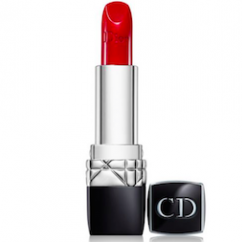Articles and News
LEI Up But Some Data Could Suggest Luxury Market Slowdown | August 31, 2016 (0 comments)

Merrick, NY—Even as leading economic indicators—including consumer confidence, CEO confidence, and employment trends—all are showing positive growth, there are signs of headwinds in the luxury market.
First, the good news: consumer confidence rebounded strongly in August, according to the latest findings from the Conference Board, which has been measuring consumer confidence on a monthly basis for more than 20 years.
The Conference Board’s Consumer Confidence Index increased more than four points in August and now stands at 101.1 (1985=100). The Present Situation Index rose from 118.8 to 123.0, while the Expectations Index improved from 82.0 last month to 86.4.
“Consumer confidence improved in August to its highest level in nearly a year, after a marginal decline in July,” said Lynn Franco, director of economic indicators at The Conference Board. “Consumers’ assessment of both current business and labor market conditions was considerably more favorable than last month. Short-term expectations regarding business and employment conditions, as well as personal income prospects, also improved; suggesting the possibility of a moderate pick-up in growth in the coming months.”
The survey measures consumers’ attitudes toward current business conditions, the short-term outlook for business conditions, and their outlook on the labor market.
But Bloomberg Gadfly warns the "lipstick index" suggests bumps in the road for luxury goods. The term, coined by Estee Lauder Cos. CEO Leonard Lauder, means a rise in sales of small luxuries at the expense of bigger-ticket items during times of economic uncertainty. The lipstick index shows premium cosmetic sales are booming while sales of designer apparel, leather, and watches are stumbling. Above left: Dior lipstick.
And the most recent survey of affluent consumers from Unity Marketing also points to a cautious outlook. While affluent consumers spent nearly 15% more on luxury products during the three-month study period in 2016 than the same time in 2015, the number who reported feeling uncertain about their own financial situation this year edged up from last year. While 75% of affluent consumers surveyed by Unity say they will spend more or the same on luxury as they did last year, 25% say they plan to cut back.
How much of their attitude is influenced by the rancorous political environment? It’s too soon to tell, says Pamela Danziger, president of Unity, but she believes luxury sales often are muted in the year following an election—not necessarily in the year of the election.
But these indicators, while concerning, must be viewed in context. 2009 was the height of the Great Recession, so the drop in luxury sales following the 2008 election year likely had far more to do with economics than politics. And Danziger’s hypothesis contrasts sharply with findings from leading luxury consultancies: sales of personal luxury goods grew in 2013 following the 2012 presidential election, according to figures from Bain, Altagamma, Exane PNB Paribas, and Euromonitor, while an analysis by Luxury Society identified a 6% growth in 2013, and still considers the American luxury market a "phoenix rising."
Meanwhile, Bloomberg’s report points out that the luxury cosmetic industry has made significant innovations in recent years, while the luxury apparel and accessories industries have not. Skinny jeans were the last big thing in apparel, and that was 10 years ago. Meanwhile, the booming selfie and vlogging culture, driven by Millennials, has produced millions of consumers eager to snap up the latest lotions and potions to look their best for the camera. While more costly than mass brands, premium cosmetics are affordable for luxury loving but cash-strapped Millennials. A Dior lipstick or a bottle of Hermès perfume is a doable indulgence, not a major investment like either brand’s handbags.
Also to note, while luxury megabrands have seen some softening of U.S. sales, the drop in Asian spending is driving much of their downturn.







